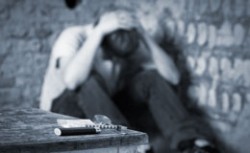How Heroin Treatment Centers Help You Recover
Anyone who’s battled a heroin addiction well knows how hard this drug can be on the body. While the “highs” from heroin may feel great, the lows can be equally painful. According to the National Institute on Drug Abuse, in 2011, as many as 4.2 million Americans reported having used heroin on at least one occasion in their lives. Of that 4.2 million people, 23 percent developed an addiction to the drug.
Heroin treatment centers provide the type of medical care and guidance a person needs to win the battle with addiction. Heroin treatment centers walk a person through each step of the recovery process from detoxification to counseling to aftercare support.
Heroin Addiction Treatment

Heroin treatment centers will provide you with the medical and emotional support you need.
Whether a person has only been using for a couple months or a couple years, heroin treatment centers are equipped to treat individuals at all levels of addiction. The length of time a person has used heroin will mostly determine what level of treatment care is needed at the start. Heroin treatment centers may offer inpatient, outpatient and/or aftercare support depending on how each program is set up.
Heroin’s effects on the body can quickly lead to dependency at which point a person’s body processes cannot function normally without the drug. Someone who’s been using for a long time would be better off seeking inpatient treatment to receive needed medical care for any physical conditions caused by long-term heroin use. Someone who’s still able to function in everyday life in terms of holding down a job may want to start out at an outpatient heroin treatment center. In this way, he or she can receive needed counseling and supports while still fulfilling work and family obligations.
Detoxification Treatment
The withdrawal effects from stopping heroin can easily cause of person to relapse if only to escape the discomfort. The withdrawal stage can last anywhere from seven to 10 days with the worst of the symptoms appearing within 48 to 72 hours of a person’s last use. Once the first 10 days are over, withdrawal effects take the form of an overall sense of malaise with ongoing cravings for the drug. Stopping heroin abuse may be the hardest first step in the recovery process, but it’s absolutely necessary.
Heroin treatment centers can help ease uncomfortable withdrawal effects using medication therapy treatments. Medication treatments provide a way to gradually taper the body’s dependence on heroine down to a point where normal bodily functions can resume.
Psychotherapy
As with any other type of drug abuse, both the physical cravings and a person’s mindset work to keep the addiction alive. Psychotherapy offers recovering addicts a way to uncover the problem issues that drove them to escape through drugs. Heroin treatment centers also use psychotherapy to help a person develop new thinking and behavioral styles that promote a drug-free lifestyle.
Therapy approaches used most often include behavior therapy and cognitive-behavioral therapy. Behavior therapy focuses on redirecting a person’s drives and motivations away from drugs and towards a healthier, productive lifestyle. Cognitive-behavioral therapy deals more with changing the underlying belief systems that support drugs as a means of coping and replacing them with healthy, self-affirming views towards self and others.
Resources:
National Institute on Drug Abuse
http://www.drugabuse.gov/publications/drugfacts/heroin